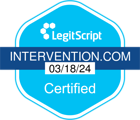When someone is struggling with long-term mental health challenges such as depression, anxiety, trauma, or even co-occurring substance use, traditional talk therapy often falls short. At Change Institute, led by renowned interventionist Brad Lamm, we emphasize the life-changing potential of Acceptance and Commitment Therapy (ACT) as a tool for healing and transformation.
ACT is more than a therapeutic technique; it’s a powerful framework that helps individuals break free from avoidance, accept difficult emotions, and move toward a life rooted in purpose and values. For families navigating mental health crises, ACT offers a meaningful, evidence-based path forward that aligns with our family-first intervention model.
Understanding ACT: A Modern Therapeutic Approach
Acceptance and Commitment Therapy is an evidence-based psychotherapy that teaches individuals to accept what’s outside their control while committing to actions that enrich their lives. Rather than trying to “fix” or eliminate painful thoughts and feelings, ACT encourages clients to notice, accept, and relate to them in new, healthier ways.
At Change Institute, we find that ACT often resonates with those who feel stuck in cycles of self-blame, emotional reactivity, or avoidance. ACT helps people create space between themselves and their distress while committing to choices that reflect their core values.
What Makes ACT Unique?
Unlike traditional therapies that prioritize symptom reduction alone, ACT is deeply focused on psychological flexibility, the ability to stay present, even in discomfort, and choose actions aligned with a client’s values.
The six core processes of ACT include:
- Acceptance: Opening up to difficult thoughts and feelings instead of resisting them.
- Cognitive Defusion: Learning to step back from unhelpful thoughts.
- Being Present: Focusing on the here and now.
- Self-as-Context: Recognizing that you are more than your thoughts or emotions.
- Values: Clarifying what truly matters to you.
- Committed Action: Taking meaningful steps guided by those values.
These tools make ACT especially useful for those dealing with anxiety, depression, PTSD, substance use, and disordered eating; common challenges in families we support at Change Institute.
Why ACT Resonates with Brad Lamm’s Breakfree Intervention Model
At Change Institute, we’re committed to holistic, family-inclusive intervention. ACT fits naturally within this invitational method of intervention because it:
- Encourages mindfulness and presence during high-stress moments.
- Builds resilience in the face of emotional triggers.
- Supports value-based decision-making essential during and after intervention.
- Promotes acceptance and compassion, both self-directed and toward loved ones.
Brad Lamm, our founder, often teaches that connection is the treatment. ACT reinforces that connection not just to others, but to oneself and one’s purpose. It helps clients move forward, even in the face of doubt, pain, or uncertainty.
The Role of Families in ACT-Informed Recovery
Even though ACT is an individual therapy, families play a vital role in reinforcing its principles outside the therapy room. At Change Institute, we empower families to:
- Understand how avoidance and fear-based behavior shows up in loved ones.
- Practice supportive, value-driven communication.
- Recognize emotional triggers and respond with compassion.
- Use ACT principles themselves for self-care and boundary setting.
In fact, many of the same ACT tools we teach clients like values clarification and acceptance are used in our Breakfree Intervention Skills Training to support loved ones.
Who Benefits from Acceptance and Commitment Therapy
Acceptance and Commitment Therapy can be especially helpful for individuals who:
- Struggle with anxiety, depression, or trauma
- Feel “stuck” despite years of therapy or self-help
- Use avoidance to cope with distress (e.g., substance use, isolation, overworking)
- Experience negative self-talk, shame, or perfectionism
- Want a more values-driven life but don’t know where to start
ACT has also shown effectiveness in helping those with co-occurring disorders and those in recovery from substance use making it a natural complement to intervention and behavioral change work.
What to Expect from ACT
ACT isn’t about eliminating symptoms overnight. It’s about developing new skills to relate differently to those symptoms and to oneself. Over time, clients learn to:
- Respond rather than react to emotional pain
- Take purposeful steps aligned with their values
- Reduce suffering by loosening the grip of harmful thoughts
- Reconnect with areas of life that fuel meaningful relationships, creativity, health, and beyond
Our team at Change Institute helps guide families and clients through this process, often as a follow-up to intervention or alongside other supportive services like coaching and group work.
How Change Institute Supports ACT Integration
Whether someone is already engaged in therapy or just starting to explore options, we help families understand and apply ACT principles to support their loved one’s healing. Our services include:
- Clinical consultation and referrals to ACT-informed providers
- Family coaching and support during and after intervention
- Values-based planning for long-term recovery goals
- Ongoing education in ACT principles through workshops and training
By combining ACT with our relational, spiritually grounded intervention methods, we help individuals and families find their way forward one small, meaningful action at a time.
Contact Us Today to Learn More!
To explore ACT and family-based mental health support, contact us here at Change Institute. Whether it’s coordinating referrals, coaching through the process, or integrating ACT with family-first intervention strategies, we’re here for your journey.

